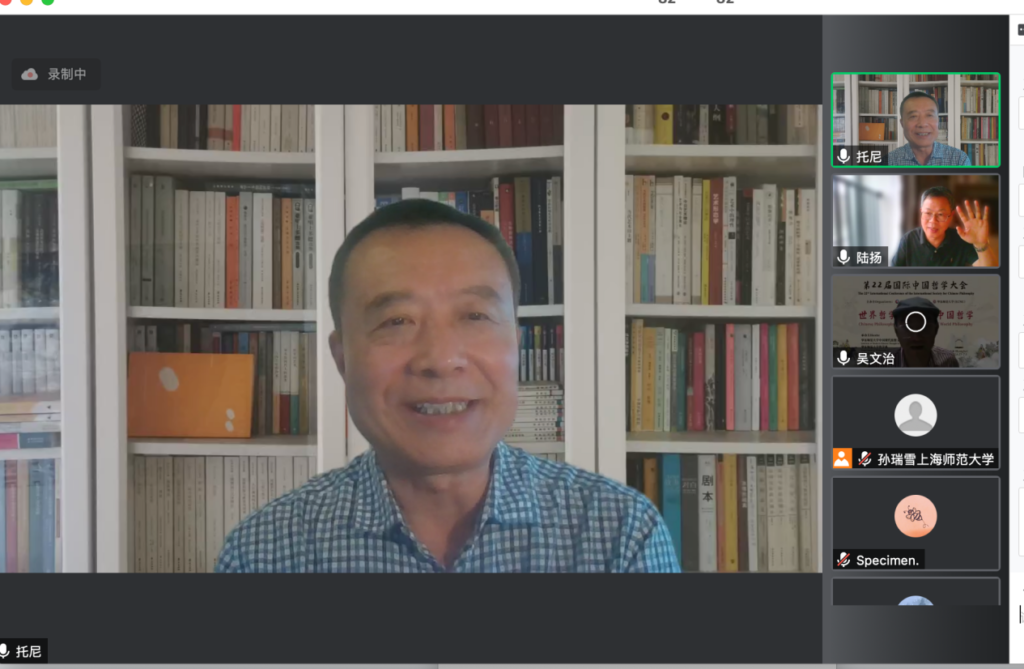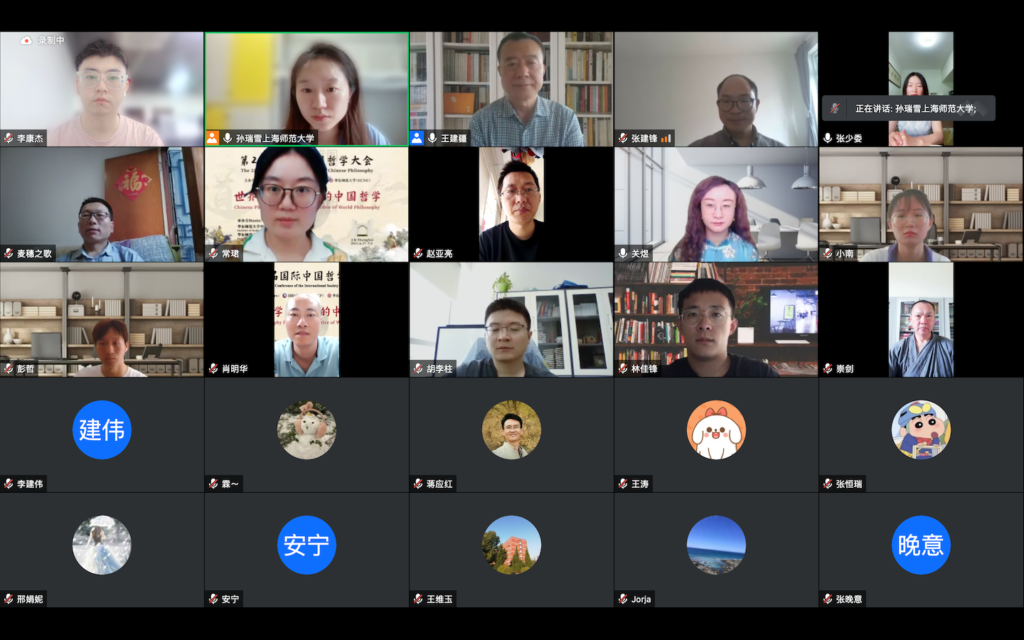Report on the “Bie-modern Philosophy and Its International Dissemination” session at the 22nd International Conference on Chinese Philosophy.
The “Bie-modern Philosophy and Its International Dissemination” session of the 22nd International Conference on Chinese Philosophy and the World Philosophy Conference on Chinese Philosophy was held online all day on June 30th. A total of 18 experts and scholars from universities such as Fudan University, Shanghai Normal University, Shenzhen University, Zhejiang Normal University, Jiangxi Normal University, Liaoning Normal University, Lanzhou University of Finance and Economics, and Shanghai Institute of Technology gave keynote speeches and engaged in dialogue and discussion.
At the beginning of the session, the convener and founder of Bie-modernism, Professor Wang Jianjiang, on behalf of the special session team, expressed deep gratitude to the conference organizing committee and the Department of Philosophy at East China Normal University. He praised Professor Chen Yun and his conference team for their academic vision, inclusive spirit and philosophical realm in adding a special session on Bie-modern philosophy at a time when all agendas had been set as the conference approached.
The main topics in the first half were From ‘Three Empires of Philosophy’ and ‘China Has No Philosophy’ to ‘Quadrangle of Philosophy’ and ‘Philosophical Moment’: Changes in Contemporary Chinese Philosophy and World Philosophical Patterns (Wang Jianjiang), Bie-modernism: Constructing Chinese Philosophical Discourse after Postmodernism (Wang Hongyue), Bie-modernism as Cultural Philosophy (Xiao Minghua), The China Question in Bie-modernism Construction (Wang Sheng), Heterogeneous Isomorphism between China and the West in Differential Philosophy: A Comparison of Several Innovative Concepts in Contemporary China and the West (Guan Yu), Modern Interpretation of Zhuangzi’s Authentic Thought from a Bie-modern Perspective (Zhao Shihua), Post-pandemic Era: Transcendental End or Pause of Globalization (Zhang Jianfeng), Intrinsic Generation Logic of Aesthetic Categories in Bie-modern Theoretical System (Zhang Shaowei) and Bie-modern Walking on the Road to ‘Deep Difference’ (Chang Jun).
In the second half, Professor Lu Yang was the moderator. The topics were as follows: Bie-modernism as A Philosophy (Lu Yang), Current Situation of Bie-modernism and Creative Transformation of Chinese Philosophy (Wang Xiaohua), All Things Carry Yin and Embrace Yang: Modern Interpretation of Laozi’s Maternal Thought from a Bie-modern Perspective (Xu Dawei), Huainanzi Combination of Taoist Thought with Modern Interpretation from a Bie-modern Perspective (Wang Weiyu), Core Concepts of Bie-Modernism in International Academic Dialogue and Dissemination (Xu Wei), ‘Overlapping Vision’ Generation Logic in Bie-Modernist Philosophy (Zhuang Huanming),Terminological Revolution’and Naming Thoughts: Necessary Preparations for Contemporary Chinese Philosophy to Participate in World Dialogue – Taking Bie-Modernism as an Example (Jiang Yinghong), Constructionof Aesthetic Theory in Bie-modernism from a Multi-dimensional Perspective (Peng Zhe), The Road to ‘Bie-modernism’ in the Periodization of China’s Modern Design History (Wu Wenzhi).
This special discussion focused mainly on 13 categories and methodological issues related to Bie-Modernist philosophy. There were both deepening studies on Bie-modernism philosophy as well as extending studies and expanding studies. The topics were rich, discussions were lively, attracting many experts from famous universities such as scholars, young students, computer experts, designers, artists, Zen masters etc., more than 100 people listened to it. Several participants said that they had gained truly original theories and ideas from this special session on Bie-modernity philosophy. They felt deeply benefited by experiencing firsthand interaction between Chinese philosophy around Bie-modernism philosophy. Participants were pleased with Bie-modernism’s global dissemination. They are full of expectations for this locally originated philosophical future.

